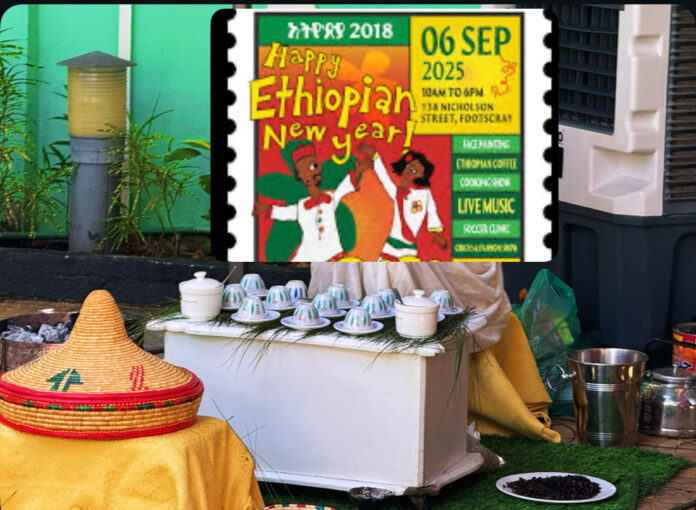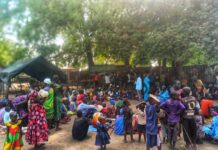As the sun rose on Meskerem 1, 2018 in the Ethiopian calendar, the scent of fresh ye-dabo dabo (holiday bread) filled homes from Addis Ababa to Gambella.
Across the border, in Juba, South Sudan, the vibrant colors of netela and traditional decorations adorned the halls of Ethiopian-owned hotels and restaurants, echoing the joy of a nation not just stepping into a new year—but into a new era.
This New Year bore a weight of symbolism. Just days before the celebration, Ethiopia had officially marked the final phase of the Grand Ethiopian Renaissance Dam (GERD) becoming operational. What once was a national vision had become a continental achievement.
The waters of the Blue Nile now turned turbines that lit up homes and powered factories—offering Ethiopia both energy independence and regional influence.
In South Sudan, where a large Ethiopian diaspora contributes to the local economy, the mood was jubilant and proud. At the Glory Regency Hotel, one of the most renowned Ethiopian-owned establishments in Juba, the lobby was transformed into a showcase of cultural pride.
Traditional mesob baskets overflowed with injera, doro wat, and tibs. The soft sounds of krar and masinko played in the background as the staff, dressed in crisp habesha kemis, welcomed guests with honey wine and coffee.
Manager Meseret Fikru, originally from Bahir Dar, stood under a giant banner that read in both Amharic and Arabic: “Enkutatash 2018 – አዲስ ዓመት በአዲስ ነገር” – A New Year with New Beginnings.”
“This year is more than a date,” she said, her eyes gleaming with emotion. “It’s the year of light—literally. Our dam is complete. Our country is rising. And even here, in South Sudan, we feel that pride deeply.”
This evening, Ethiopian businesses across Juba will host cultural night with diners enjoyed live dance performances of the eskista, where shoulders rolled with ancient rhythm.
The air smelled of roasted coffee beans as the traditional bunna ceremony was performed table-side. South Sudanese guests joined in too, clapping and swaying with the music, a sign of the growing cultural bridges being built beyond the dam.
Back in Ethiopia, Prime Minister Abiy Ahmed addressed the nation, highlighting how the GERD’s completion on the eve of the New Year was a “gift to the generations” and a testament to unity, patience, and ambition.
His message was broadcast in Ethiopian businesses abroad, including the cafés and shisha lounges in East Africa’s diaspora communities, where the news was met with cheers.
For many Ethiopians abroad especially in Juba, where they often navigate the challenges of cross-border trade, cultural preservation, and political uncertainty this New Year wasn’t just a holiday. It was a reaffirmation of identity. A reminder that no matter where they are, the current of Ethiopia’s progress reaches them too.





